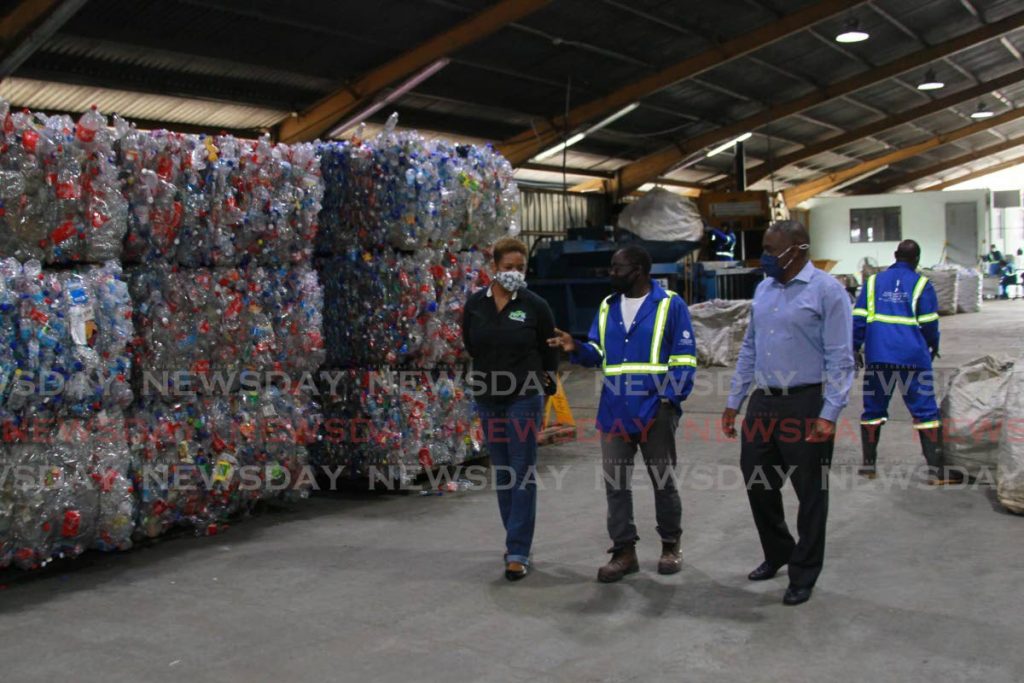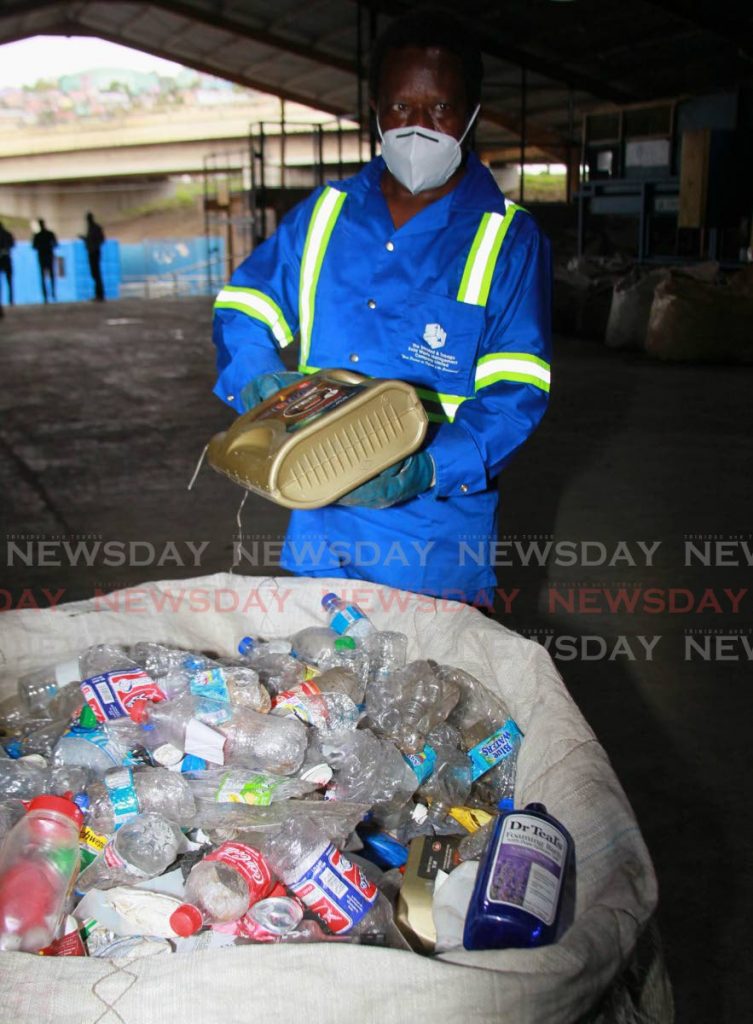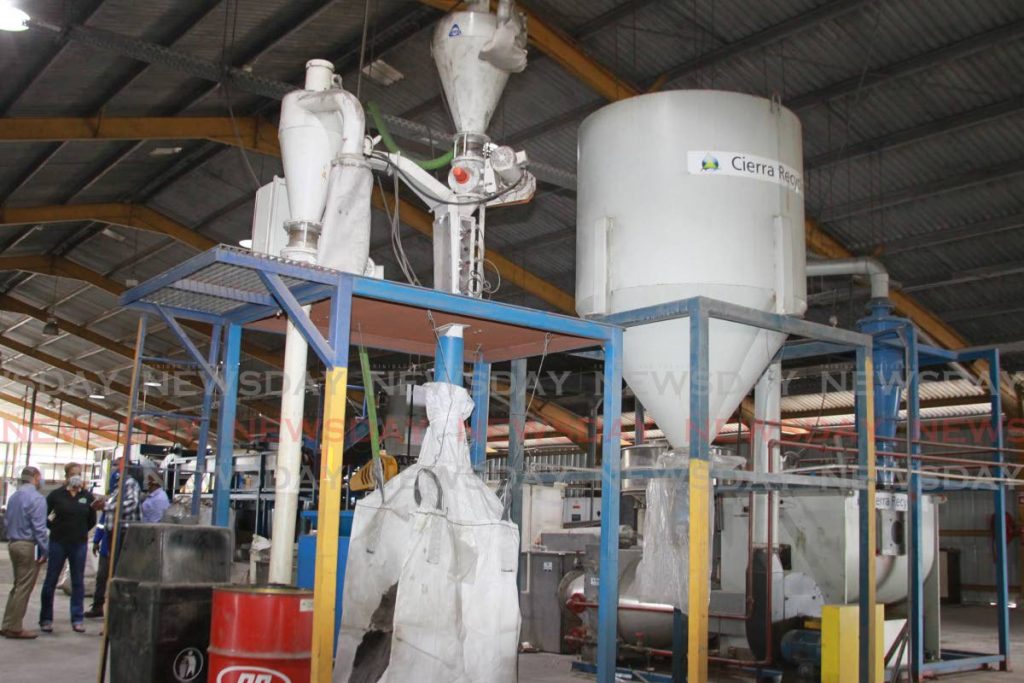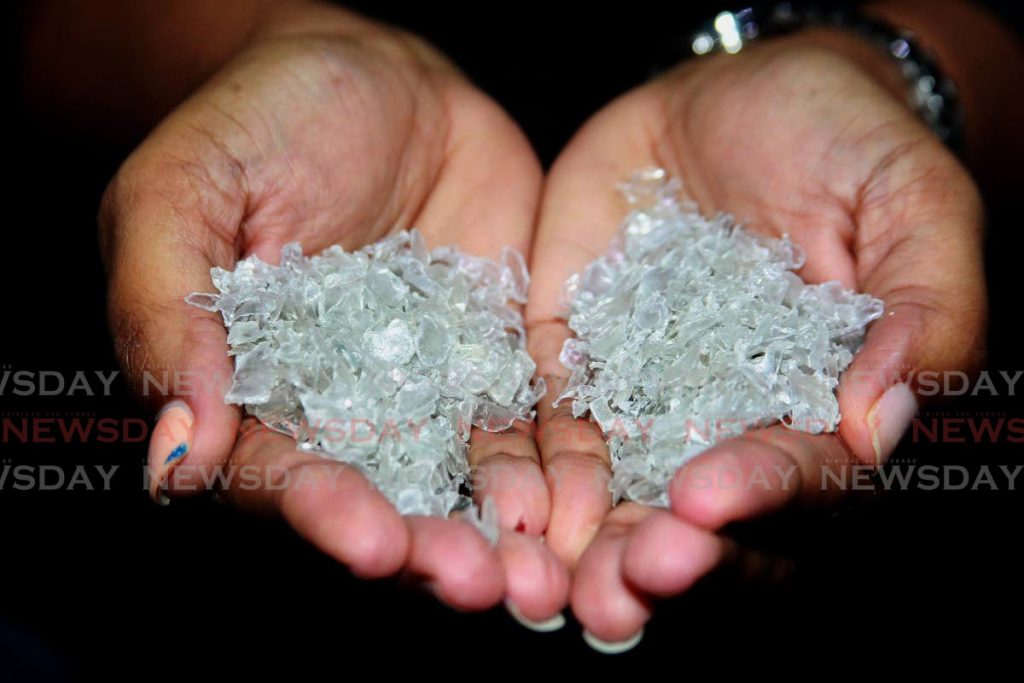SWMCOL on mission to stop plastics pollution

It has become a sad but familiar scene in Trinidad and Tobago to see plastic bottles clogging drains and floating in waterways. But for the TT Solid Waste Management Company, (SWMCOL) legislative changes and more citizens recycling can see many of these bottles removed from the environment and money going into people's pockets.
CEO Kevin Thompson spoke on the plastic pollution situation in the country during an interview last week at SWMCOL's head office, Independence Square, Port-of-Spain on the occasion of World Consumer Rights Day on March 15 and the theme – Tackle Plastic Pollution.
He said there were no legislative instruments to force people to recycle and participation from the public is voluntary. He noted the current government and previous governments have been pursuing a Beverage Containers Bill.
"We hope – and pronouncements from our minister is – that is coming. But as we speak today that is not in place. We're closer today than we were yesterday but we're still not where we'd like to be."
On the bill, he said participation is critical to recycling in any jurisdiction. He explained recycling is a volume business and the higher the volume the more opportunities for entrepreneurs and the less opportunity for damage to the environment because it is being dealt with properly.
"So you don't have the scenes that we tend to have in TT when there is a flood that the top of the Caroni is full of plastic and consumables heading down the river. Or whenever there is a flood scenario anywhere in the country you see all of the plastics coming to the fore. That is not where we wanted to be."

He said voluntary participation is critical, and that is being done, but some people need legislative and fiscal inducements.
"So the legislation provides that framework for the other persons who may not be so voluntarily-minded or environmentally-sensitive about the damage that is being done to the environment. And you give them another reason to participate.
"So we appreciate the government's stance in terms of this policy and we see the clear alignment with Vision 2020. And we are, with bated breath, waiting to see when the legislation will be proclaimed."
He explained that, because there is a deposit on glass bottles, one would see people on the side of the road picking them up for cash. He recalled while on Independence Square he saw someone put down two glass bottles and another man immediately picked them up. He stressed if there was a similar system for plastic bottles there would be much greater participation. He also predicted that youth clubs, churches, and schools would begin picking up plastic bottles as a fundraising mechanism.
Thompson added that if the government created a deposit system this could easily be extended to other materials.
"At SWMCOL we are doing work on developing position papers on different waste streams."

He added: "All waste streams create opportunities to have less waste in the landfill."
Recycling and recovery unit manager Terry-Anne Carter-La Fon reported that the company receives incoming material from both SWMCOL-driven programmes and external stakeholder programmes. She said the three main areas were the public sector, private sector, and municipal bodies.
In 2020 SWMCOL processed 335 tonnes of material and this was a slight decrease year-on-year due to some covid shutdowns. She said the company operates three sites—Namdevco in Sea Lots, Forres Park and Guanapo—and at that time two had to be closed.
Carter-La Fon said, however, that year-on-year more people were recycling as the population was becoming more educated about the initiatives.
She noted SWMCOL primarily deals with beverage containers and type-one plastic (polyethylene terephthalate or PET) and type two-plastic (high-density polyethylene or HDP). The plastic is sorted by type and colour as this is the way the end-markets would like to receive the material.
The PET is either baled or processed through their PET wash line which converts it into flakes to be later packaged for export. The HDP is sorted and then baled for export. The main markets for the material are North America, Central America and South America.

Carter-La Fon said the PET can be turned into PET straps, PET fibre or pellets to be used for other materials.
"It is wide-ranging. It really depends on what the end-user is going to do."
She noted, locally, the company Delta Romeo Bravo makes plastic lumber and they primarily use PET flakes or HDP in their process. She also cited the NGO Flying Tree Environmental Management which incorporates plastic into concrete and makes concrete products with plastic.
She explained types three to seven plastics are not really used in beverage containers and are received in lesser quantities. Those types are held until sufficient quantities were collected for sale.
Most of the plastic was coming from the Environmental Management Authority and their iCARE programme. SWMCOL also receives glass, which goes to Carib Glass for recycling, tetra pak, aluminium cans and steel cans. Other than glass, the material is baled and shipped or sold to someone for shipping.
Thompson said there was a steady increase in recycling prior to covid but SWMCOL would like to be at the "apex."
"We are not satisfied. There is still more to be done."
And of all the plastic produced and brought into TT, where does it end up? Thompson said that was a difficult question to answer. He said, firstly, manufacturers keep their production levels as a closely guarded trade secret and there is no legislative mechanism compelling them to report it.
It was also impossible to say how much went into landfills as they are not sorted but compacted together with the other garbage. Thompson, however, gave a rough estimate that about ten per cent of plastics are recycled.
"We are happy with the incremental progress on the voluntary side. But we look forward to the incentives that would catapult participation rates above 50 per cent."
And Thompson predicted that TT could hit that benchmark a year after the Beverage Containers Bill had been implemented.
He added SWMCOL was looking forward to engaging the young population in schools. For Global Recycling Day on March 18 they will be launching the traditional "Charlie" litter prevention character together with some new characters, as well as a "recycling heroes" project where people would be asked to submit heroes of recycling.

Comments
"SWMCOL on mission to stop plastics pollution"